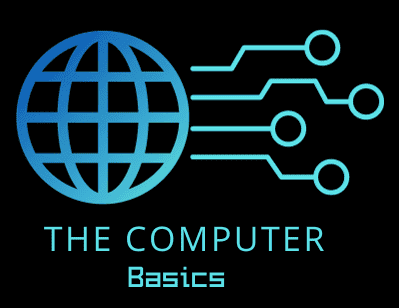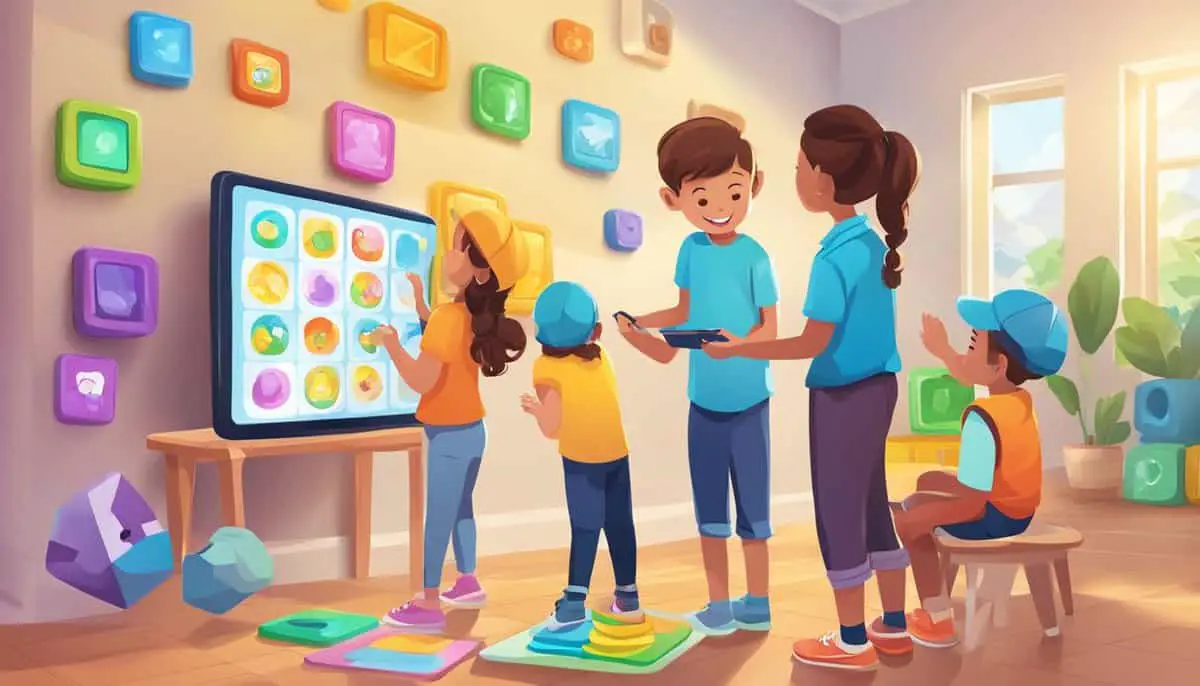In a world where technology is everywhere, educational apps are changing how kids learn. They’re not just games; they’re tools that make learning fun and exciting. With the right apps, your child can explore new subjects, practice important skills, and even enjoy a safe and engaging screen time.
These apps combine fun and learning, making them perfect for kids of all ages.
Choosing the best educational apps for your child can be tricky. You want something that’s not only fun but also educational and suitable for their age. That’s why it’s important to look for apps that are both engaging and packed with educational value. Learning should feel like an adventure, not a chore, and the best apps do just that.
From apps that teach math through games to those that make reading interactive, there’s something for every child. Look for options that are designed to grow with your child, offering new challenges and skills as they advance. With the right educational apps, learning can be a joyful experience for your child.
Key Takeaways
- Educational apps mix fun with learning for all ages.
- Choose apps that are engaging and have strong educational value.
- Look for age-appropriate apps that adapt as your child grows.
The Importance of Educational Apps in Childhood Learning
Educational apps can play a vital role in childhood learning by making education interactive and engaging. These apps help kids develop important skills while having fun.
Cultivating Critical Thinking and Problem-Solving Skills
Educational apps are great at helping kids develop critical thinking and problem-solving skills. Apps like Toca Life and My Food—Nutrition for Kids use interactive and fun activities to engage kids in learning. They present challenges that require kids to think creatively and make decisions.
These apps often come with puzzles, matching games, and problem-solving scenarios. By solving these, kids learn to think strategically and improve their decision-making skills. Moreover, many apps adjust the difficulty level based on the child’s progress, keeping them constantly challenged without being overwhelmed.
Enhancing Reading and Literacy Through Interactive Apps
Interactive apps can greatly improve reading skills and literacy in children. Apps designed for reading often include features like read-aloud, phonics games, and interactive stories. Daniel Tiger’s Stop & Go Potty, for instance, combines learning with storytelling, making it easier for kids to understand and retain what they read.
Some apps track the child’s progress, providing personalized feedback and suggestions for improvement. With colorful graphics, engaging stories, and fun characters, these apps make reading a pleasurable activity, encouraging kids to spend more time learning. This not only boosts their reading skills but also fosters a lifelong love for books and learning.
Best Educational Apps by Subject and Skills

Check out these educational apps that help kids excel in different subjects by making learning fun and engaging. Each app targets specific skills and offers interactive ways for your child to learn and grow.
Math Mastery with Apps
SplashLearn is an engaging math app that covers a wide age range, from early learners to elementary students. With over 10,000 math games and activities, it ensures kids practice math skills in a fun way. Whether they’re learning basic addition or exploring geometry, the app adapitates to their skill level.
Khan Academy Kids provides a broad range of math exercises, making learning interactive and enjoyable. The app includes videos and practice problems that adapt to your child’s progress, offering everything from counting to advanced arithmetic.
Prodigy is another exceptional app that gamifies math learning. Kids embark on adventures, solving math problems to progress. It’s ideal for keeping kids interested in mathematics while improving their problem-solving skills.
Language Learning and Vocabulary Enhancement
ABCmouse is a fantastic app for young kids (ages 2-8). It focuses on early reading skills through engaging stories, songs, and puzzles. Kids build their vocabulary and improve their reading skills in a fun environment.
For older kids, Epic! offers an extensive library of over 40,000 books. It’s great for developing reading skills and expanding vocabulary. Whether your child is interested in fiction, non-fiction, or educational books, there’s something for every reader.
Duolingo is excellent for language learning, offering over 30 languages. Its game-like structure keeps kids motivated as they complete lessons and quizzes, making language learning a fun daily habit.
Science and Exploration: Interactive Learning
Khan Academy Kids covers a range of subjects, including science. Through interactive videos and exercises, kids can learn about different scientific concepts. The app makes complex ideas easy to understand and enjoyable to explore.
Tynker combines science and technology by teaching kids about space, physics, and more. The app includes programming puzzles that involve real-world scientific principles, enhancing both their science knowledge and coding skills.
Seek by iNaturalist lets kids explore nature by identifying plants and animals. They can take pictures and get instant information about various species, making science hands-on and engaging.
Coding for Kids: Programming Their Future
Hopscotch is perfect for introducing kids aged 9-11 to coding. It uses a visual programming language that allows kids to create games and animations. It’s designed for iPads and iPhones, making it accessible and easy to use.
ScratchJr targets younger children (ages 5-7). It simplifies coding by letting kids create stories and games through a drag-and-drop interface. This helps develop problem-solving skills and introduces basic programming concepts.
Code.org offers courses for different age groups, focusing on game design and logical thinking. Kids learn by creating their own games and apps, making coding practical and fun.
Art and Creativity: From Digital Canvas to Life Skills
Toca Boca provides a suite of creative digital apps that let kids engage in virtual play. They can create stories, design characters, and build worlds, which boosts creativity alongside digital skills.
Drawing Desk offers a platform for young artists to draw, paint, and edit pictures. With various tools and templates, kids can explore their artistic talents and develop fine motor skills.
Khan Academy Kids also includes art projects where kids can draw, paint, and create crafts. These activities promote creativity and provide a well-rounded educational experience.
Recommended Age-Appropriate Apps for Various Stages

Selecting the right educational apps can greatly enhance your child’s learning experience by making education fun and engaging. Below, you’ll find some of the best apps tailored to different age groups, ensuring they are age-appropriate and effective.
Early Learning and Preschool Apps
For young children, early learning and preschool apps should focus on developing basic skills such as letters, numbers, colors, and shapes. Khan Academy Kids is an excellent choice, offering a wide range of interactive activities designed for kids aged 2-7. It’s free and features content approved by educators. Apps like ABCmouse are also highly recommended for their comprehensive curriculum that covers phonics, reading, and early math skills.
Apps like Endless Alphabet teach vocabulary and spelling through fun animations and puzzles. Common Sense Media often reviews these apps, ensuring they’re safe and effective for young minds. Engaging characters and simple interfaces make these apps highly suitable for preschoolers.
Expanding Horizons for Elementary School Kids
For kids aged 6-12, educational apps should go beyond basics and introduce more complex subjects such as science, history, and advanced ELA (English Language Arts). Prodigy is a great math-based game tailored to each child’s skill level, making math fun and engaging. Science apps like Toca Lab allow kids to explore elements and conduct virtual experiments.
Famous for reading comprehension and grammar practice, iReady is another stellar app that aligns with school curriculums. Kids can dive into interactive stories and quizzes. Apps like Duolingo can be very useful if you’re looking to introduce a second language. These apps are often certified by educational bodies and offer structured learning pathways suited for elementary students.
Middle School: Diversifying the Knowledge Base
During the middle school years, apps should help diversify knowledge and enhance subject-specific skills. Khan Academy is very effective for a wide range of subjects, providing in-depth tutorials and practice exercises. Apps like Quizlet help with memorization and studying across various subjects, from vocabulary to historical dates.
For math, Photomath assists students in solving and understanding complex problems by breaking down each step. ELA can be bolstered with apps like Grammarly that offer grammar tips and writing assistance. Recommendations from Common Sense Media ensure these apps are age-appropriate and adhere to educational standards, making them reliable for students aged 11-14.
High School Apps: Specializing and Deepening Understanding
High school apps are designed to deepen understanding and focus on specialization. Coursera offers courses from universities covering a plethora of subjects, perfect for advanced learners looking to get ahead. Khan Academy remains a staple for high school students, providing SAT prep and lessons on advanced subjects like calculus and physics.
Evernote is an excellent tool for note-taking and organization, crucial for high school students managing multiple subjects and projects. Additionally, apps like Wolfram Alpha are invaluable for solving complex equations and providing detailed explanations, helping students understand higher-level math and science concepts.
Using these well-reviewed and educator-approved apps can significantly boost your child’s learning experience at every stage.
Keeping Kids Engaged: The Fun Aspect of App-Based Education

Educational apps make learning fun by incorporating engaging content and interactive elements. This section focuses on two main methods: gamification and interactive storytelling.
Gamification of Learning
Gamification uses game-like features to teach. Many educational apps, like Khan Academy, use points, rewards, and levels to keep kids motivated. This approach helps kids associate learning with fun activities, boosting their willingness to engage with the content.
Apps like DragonBox use puzzles and challenges to teach math. By solving these puzzles, kids learn math concepts without even realizing it. Each level builds on the previous one, making learning feel like an adventure instead of a chore.
Incorporating these elements makes subjects like math and science more appealing. Kids enjoy earning rewards and reaching new levels, which encourages them to keep going. This approach transforms learning from a task into an enjoyable experience.
Interactive Storytelling and Adventures
Interactive storytelling is another way to keep kids engaged. Apps like Epic! offer a wide range of books with interactive features. Kids can click on words to hear them pronounced, or watch animations that bring stories to life. This makes reading more dynamic and helps kids connect with the material.
Some apps go even further by creating entire adventures where kids make choices that affect the story. These interactive adventures help improve critical thinking and decision-making skills. Kids feel like they’re part of the story, which makes them more invested in what they’re learning.
This type of engagement is essential for young learners. By making stories interactive, these apps help kids develop a love for reading and learning.
Ensuring Safe and Effective Screen Time

Making sure your kids have safe and effective screen time means using tools that balance fun and education in a secure environment. This involves parental control and helpful feedback features to ensure a positive experience for your children.
Parental Control and Feedback
You want to make sure that your kids are spending time on apps that are both safe and educational. Many apps come with parental control features. These let you set time limits, restrict access to certain content, and monitor what your child is doing. This helps you create a controlled environment so they are not exposed to inappropriate content.
Feedback is another important feature. Apps that offer feedback can show you how your child is doing and what they are learning. This could be through progress reports or notifications about completed tasks. Knowing what your child is up to helps you guide their learning journey more effectively.
You can find apps designed for kids’ mental health and well-being. These apps encourage activities like mindfulness and paced breathing. Educational apps are also popular for their engaging and interactive content. For example, many of the best apps available on Google Play come highly recommended and have been reviewed by experts.

